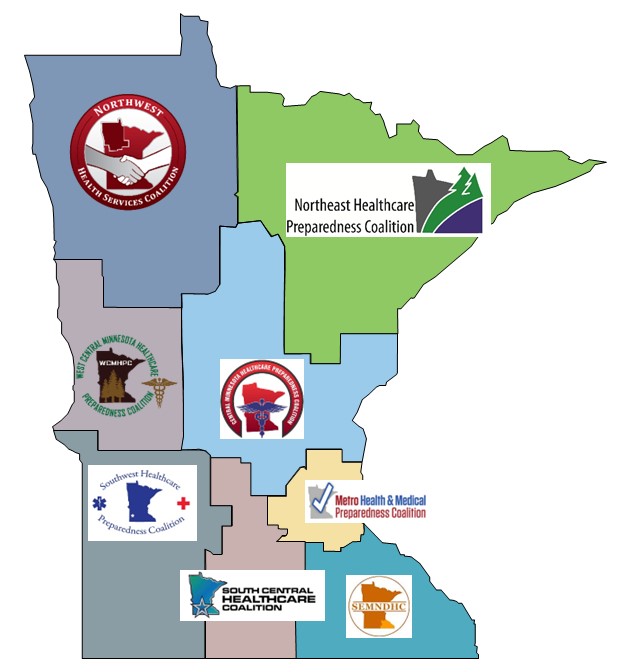Contact Info
Health Care Coalitions
 |
Since 2002, Minnesota has established and maintained eight regional Health Care Coalitions defined by geographical boundaries. Each HCC is made of multi-disciplinary partners (minimally including: hospitals, emergency medical services, emergency management, and public health agencies) responsible for ensuring health care services are minimally impacted during emergencies or planned events. In addition, they provide a level of stability and redundancy of preparedness and response services within their communities. This is achieved through: addressing resource requests, leading and engaging in information sharing, and coordination of the incident or event.
For more information on how to connect with your HCC leaders, please reference the Regional Health Care Preparedness Coordinators.
Tools and Resources
- Regional Health Care Preparedness Coordinators
Minnesota has eight Health Care Coalitions defined by geographical boundaries. - Continuity of Operations Planning for Health Care & Long-Term Care
Health care system recovery planning. - MNTrac Overview
A web-based system for tracking health care system bed availability across Minnesota.
Plans and Guidance Documents
- Inter-Coalition Communications Guidance (PDF)
A communication framework for all eight Minnesota Health Care Coalitions to implement when resources exceed capacity or incident exceeds HCC boundaries.
Updated 4/18/2022
